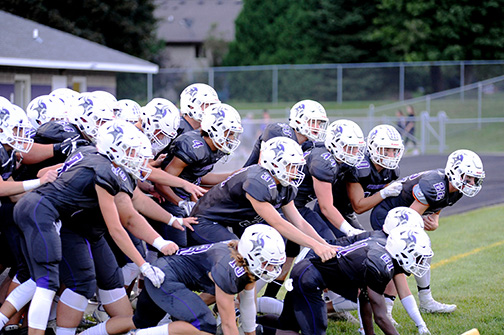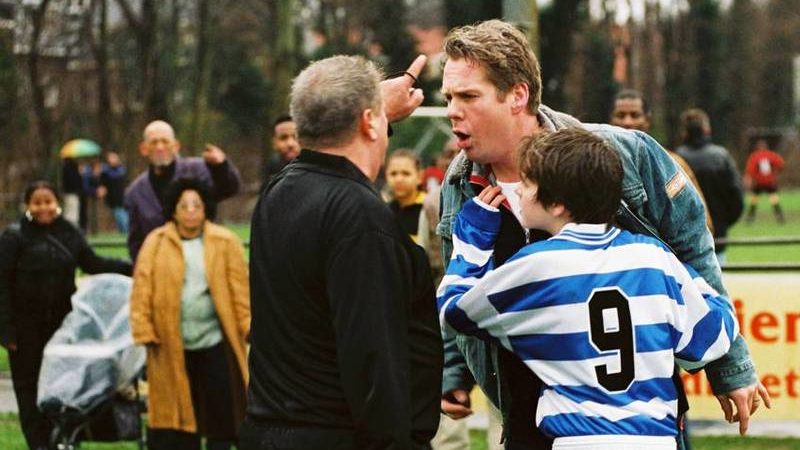Building and sustaining an elite athletic program
An elite program is one that has a legitimate chance to compete for and win championships on a regular basis. It’s a high-level program that almost always has highly-talented athletes, great coaching, a solid talent pipeline, strong tradition, an avid fan base, positive media coverage and respect from colleagues and administrators alike.
 I’ve been privileged to work with numerous elite programs and have picked the brains of many championship coaches to develop the 12 essentials of building and sustaining an elite program.
I’ve been privileged to work with numerous elite programs and have picked the brains of many championship coaches to develop the 12 essentials of building and sustaining an elite program.
1. Elite athletes.
Obviously, to compete and win at the highest levels you have to have elite talent. Six-time national champion North Carolina field hockey coach Karen Shelton says, “Recruiting is an absolute key to sustained success. You can never underestimate the value of great recruiting.” Thus, recruiting highly-talented athletes and developing them to their fullest potential is probably the most important ingredient to build and sustain an elite program.For high school coaches, this means talking to potential players in the halls of your school and using your current athletes to recruit their talented friends
2. Elite staff.
Reinforcing the importance of surrounding yourself with great people, you also must hire, empower and keep a top-notch staff. As the late N.C. State women’s basketball coach Kay Yow once told me, “When a person becomes a head coach, there’s nothing more critical than the staff that you hire to work with you. If you’re going to take the time and make sure about something, do as great a job there as you possibly can because it will definitely impact your career as a head coach.”
Invest the time and resources to get the very best assistant coaches and support staff for your team. They must embrace your overall philosophy and work ethic, as well as demonstrate unquestionable character. Further, these staff members should be highly skilled in areas where you are less so.
3. Passionate, compelled & competitive leader.
As Ralph Waldo Emerson once said, “Every institution is the lengthened shadow of one man.” The “lengthened shadow of one person” concept certainly holds true when you examine elite and enduring programs. The key to assembling, orchestrating and motivating the elite athletes and elite staff previously mentioned usually comes down to one extraordinary leader.
Through the years, various athletes and staff on championship teams come and go, especially with the high turnover rates in college and high school athletics mentioned earlier. But the common denominator with elite programs is an elite head coach.
Nick Saban (Alabama football), Anson Dorrance (North Carolina women’s soccer), Mike Krzyzewski (Duke men’s basketball), Mike Candrea (Arizona softball), Pat Summit (Tennessee women’s basketball), Karen Shelton (North Carolina field hockey) and Russ Rose (Penn State volleyball) have developed dynasties, which have the rare ability to orchestrate sustained, high-level excellence.
These elite coaches instill their competitive wills and high standards within their programs year after year. Their exemplary commitment compels others to work hard and persist through obstacles. And their sheer competitiveness fosters an intense and relentless drive to succeed within their athletes.
4. Championship culture & chemistry.
As Lou Holtz once said, “You are not going to win without talented athletes, but you can lose with them too.” In addition to having the top talent and coaching on your team, you must invest the time to develop a championship culture and chemistry where your athletes can thrive, get along and develop to their full potential.
A championship culture is an intangible that is hard to measure but one that is absolutely essential to sustained success. The best example I have heard in describing the impact of culture is the analogy of an aquarium. As business author Jay Conger writes, “Culture is much like the water in an aquarium. While it is largely invisible, its chemistry and life-supporting qualities profoundly affect its inhabitants. Leaders affecting an organizational transformation must understand the vital role the corporate culture plays.”
5. Responsible & respected team leaders.
There’s only so much you can do as a coach, and only so much time you can spend with your athletes. By developing leaders within the team who are extensions of you and your standards, however, you are ensured of having a solid and positive influence on the team at all times.
Effective leaders not only exemplify the standards and values of the team on a daily basis, they also enforce them with their teammates. Great team leaders echo and enforce your culture in the locker room, on the practice fields, in the weight room, in the classroom and at social gatherings. They effectively co-lead the team and add another layer of leadership with exponential impact.
6. Know your M.O.
 Elite programs have a very clear understanding of what they’re all about. They know what they stand for and structure their programs, practices and priorities around maximizing their strengths and minimizing their weaknesses. They develop a certain way of doing things (M.O. modus operandi) with how they play and compete that is distinctive of and a decisive advantage for their programs.
Elite programs have a very clear understanding of what they’re all about. They know what they stand for and structure their programs, practices and priorities around maximizing their strengths and minimizing their weaknesses. They develop a certain way of doing things (M.O. modus operandi) with how they play and compete that is distinctive of and a decisive advantage for their programs.
Bill Walsh pioneered and perfected the West Coast Offense. Carolina women’s soccer distinguishes itself with an aggressive 3-4-3 formation. And Duke men’s basketball’s brand is a stifling man-to-man defense. Even though their opponents usually know what is coming, they are still very tough and sometimes impossible to stop.
Elite programs meticulously select athletes that fit their system, repeatedly teach and train their athletes in the system, provide ongoing feedback on how well they are executing their system, reward those who excel, and correct and reprimand those who stray from it. It’s not necessarily which system you pick that is the key, as many teams win championships with very different offenses and defenses. Instead, success is based more on total mastery of a particular style of play that distinguishes your program from others and most often defeats your opponents.
7. Staying current & cutting edge.
As an elite program, you must continually guard against complacency and the dreaded comfort zone. When you get to the top, you can’t rest on your laurels because everyone else is out to knock you off.
You continually need to look to innovate and stay up to date with the latest innovations in your sport, equipment, training, etc. Better yet, strive to lead the field. Simply look at the example of Apple, which has used disruptive innovations to change the game and revolutionize computers, phones, publishing, movies and music in the process. Apple’s willingness to “think different” has frustrated, overwhelmed and even destroyed many of its competitors.
Steve Jobs once said, “Innovation has nothing to do with how many R&D dollars you have. When Apple came up with the Mac, IBM was spending at least 100 times more on R&D. It’s not about money. It’s about the people you have, how you’re led and how much you get it.”
8. Mental edge.
With all of these things in place, elite programs develop and benefit from a mental edge. No matter who they play against, what the score might be, or how much time is left, they expect to win. They train, warm-up and compete with a certain intensity and confidence that they can get the job done.
This mental edge becomes as much a key to their success as is their physical talent. Many opponents can be intimidated before the competition even starts simply by the way the elite team carries itself. And within the competition itself, elite teams play with a certain pride and passion that says they are not to be denied.
9. Rounding things out with depth.
Elite programs also look to build depth in their programs. Depth helps them mitigate against the natural obstacles and adversities of a season, including injuries, illnesses, slumps, academic challenges and transfers.
Elite programs consciously develop their reserves throughout the season so they can, if necessary, effectively step in for any injured, ill or slumping superstars.
10. Rounding things out with elite facilities.
In building an elite program, you typically have greater access to funds because fans and donors like to be associated with winners. This leads to building a great following and booster group, both of which can support your goals and aims. In doing so, enlist their financial help in building facilities and programs to keep you on the cutting edge.
11. Humility.
As an elite program, never be fully satisfied. Sure, you can and should enjoy your success and celebrate your championships. But you also must realize that the privileged position you have ascended to is a precarious one, so conduct yourself with a certain humility.
UNC field hockey coach Shelton says, “I think humility is very important. Once you start thinking you are great, that’s when you are going to start to decline. And that goes with your team as well. So from the top, you have to have your student-athletes and staff understand that you are only as good as your next game.”
12. Elite organization.
Finally, it takes a well-organized coach to continually plan, orchestrate, monitor and adjust all these factors throughout the course of a season. Building and sustaining an elite program obviously does not happen by accident. It necessitates a comprehensive and complete system of people and processes all aligned toward success.





